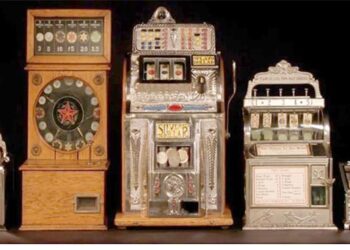The modern era of mankind is based on the fact that any situation can be interpreted logically. There is less and less space now for anything supernatural, unreal, superstitious. However, neither signs, nor numerous rituals, nor belief in amulets or talismans become obsolete. Superstitions continue to exist, exerting a certain influence not on all of humanity, but on a part of people.
Where does belief in superstition come from?
At its core, the concept of “superstition” has a literal meaning – belief in the impossible. Where does this faith come from?? The answers are several educated guesses. Separate signs or rituals are borrowed from parents, being a kind of family value. In this variant, the idea is firmly fixed in the child that any sign works, it must be trusted, it cannot be ignored. Another option is well-known superstitious ideas that can be noted in the context of “everyday psychology”. Everyday psychology is not based on scientific evidence and sound psychological theories, but on self-acquired experience. Hence the belief in omens or rituals grows. The third option is a penchant for “magical thinking”. In psychology, this means absorption by the idea that any thought can be reflected in events, situations, leaves an imprint on actions leading to some vaguely expected finale. However, all such variants of belief in superstitions are based solely on autosuggestion.
Where does belief in superstition come from?
Self-hypnosis is an infinitely powerful mechanism. It can both cure a serious illness and attract extremely unfavorable events into a person’s life. The combination of self-hypnosis and knowledge about the interpretation of signs gives rise to a result. For example, having an idea of what might happen if a black cat crosses the road, a person begins to subconsciously look for trouble himself, “look out” for negative events. Even minor troubles in the context of superstitious ideas will begin to be seen as something serious, stand out brighter against the background of other events.
The tendency to believe in rituals, predictions and other points included in the concept of “superstition” can both help a person and, on the contrary, aggravate the situation. Positive signs strengthen the fortitude, allow you to fully believe in the good outcome of the started or planned business, deed. Negative omens only increase inner anxiety. Therefore, so often, when reading a horoscope, people convince themselves only of the good part of it, trying to close their eyes to the negative aspects. Some signs or predictions are able to eradicate fear and apprehension regarding future events, especially at those moments when events are seen as very important. Alfred Hitchcock said that for a person there is nothing worse than a door closed in front of him. Superstitions are to some extent capable of opening such a door, showing what is hidden behind it.
Where does belief in superstition come from?
The greatest tendency to believe in superstition is observed in children and in women. Men are not as emotional and anxious, they are less impressionable. They perceive events a little differently and look at the world, often in their lives there is practically no place for superstitious moods.
A strong belief that predictions or rituals undeniably work can be noted in gamblers, people with low self-esteem, who are inherently insecure, in people who are secretive, withdrawn, who strongly trust developed intuition. Personal ritual actions are often noted among creative people, representatives of bohemia (actors, musicians, circus performers).
A person at any time, in any era, needed to believe in something. And, perhaps, this is another reason why superstitions persist even now. Here, as in other moments of life, the key rule is important: everything should be in moderation.













